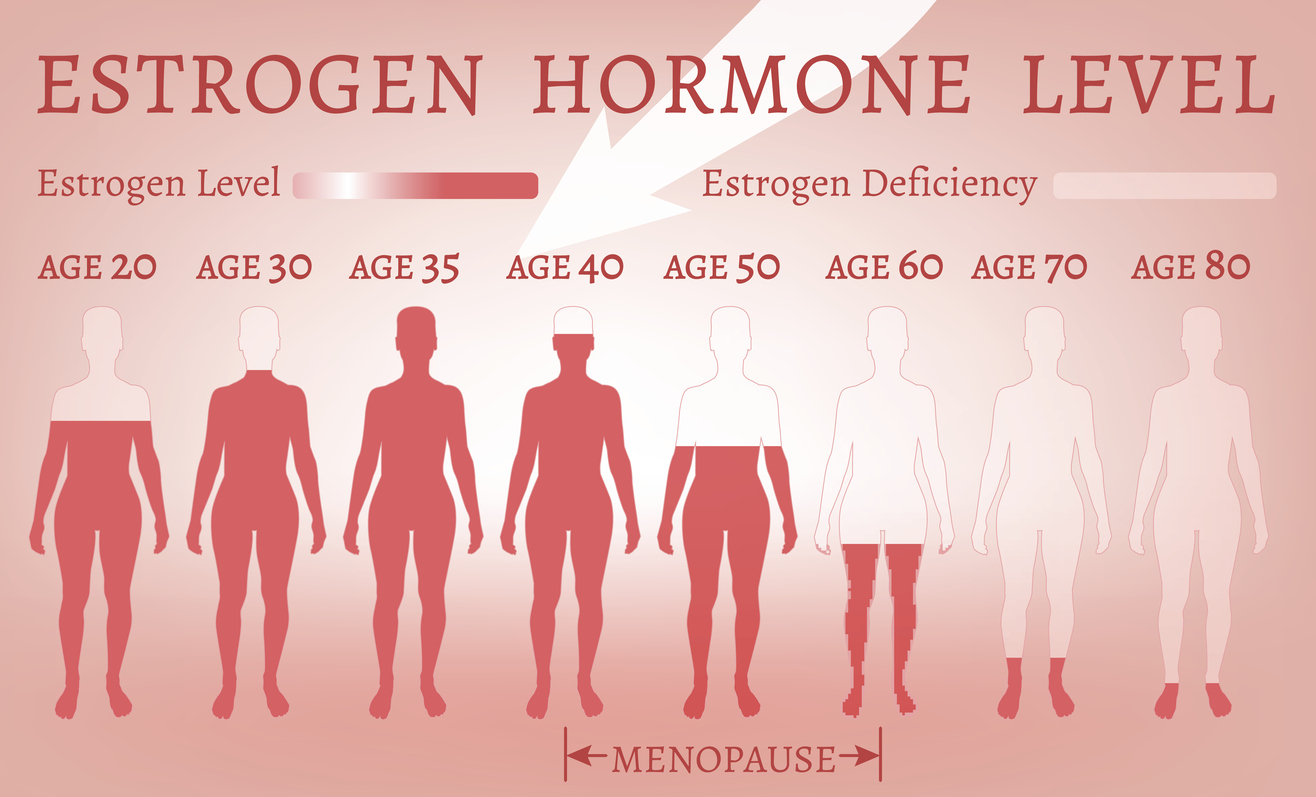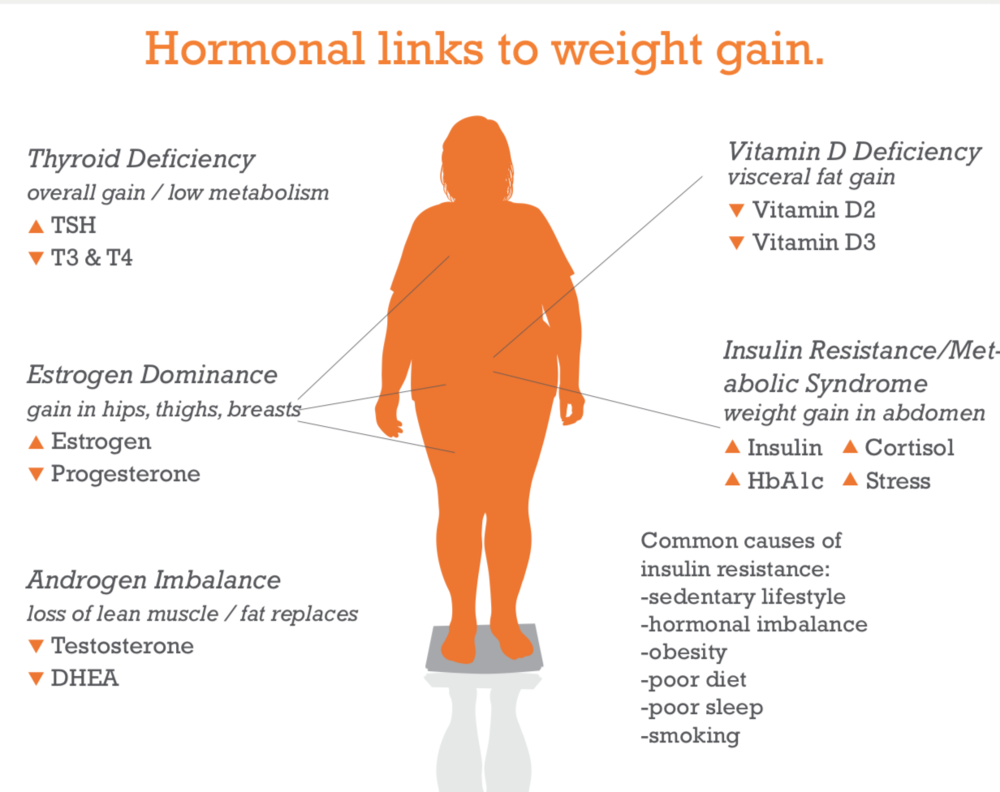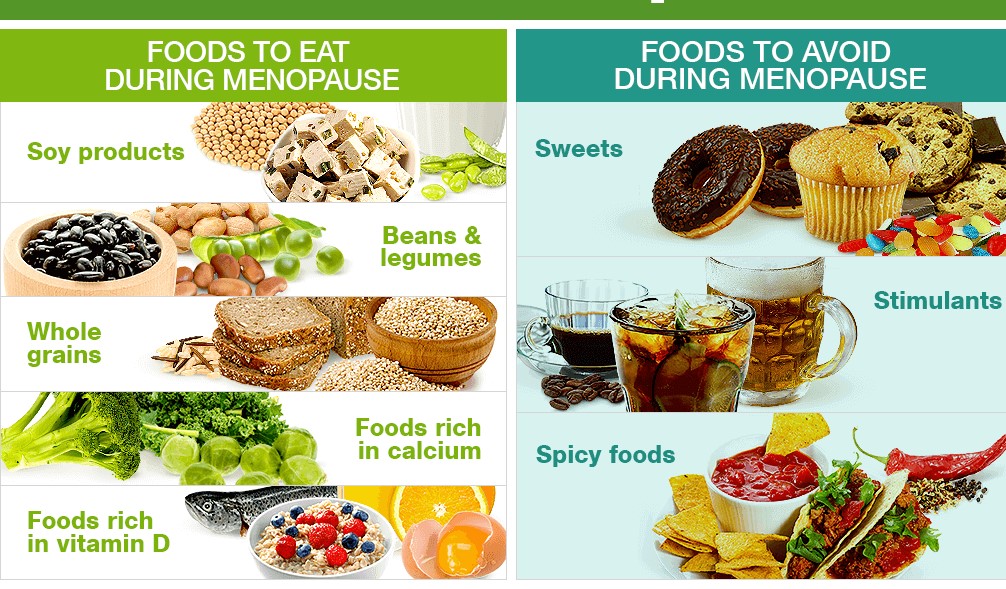Menopause: What Is It?
Menopause is the permanent end of menstruation. It’s a turning point, not a disease, but it can have a big impact on a woman’s well-being. Although menopause can bring physical discomfort from hot flashes, night sweats, and other symptoms, it can also be the start of a new and rewarding phase of a woman’s life

What Causes Menopause?
Age is the leading cause of menopause. It’s the end of a woman’s childbearing years, brought on by the ovaries gradually slowing down. Certain surgeries and medical treatment can induce menopause. Those include surgical removal of the ovaries (bilateral oophorectomy), chemotherapy, and pelvic radiation therapy. Having a hysterectomy (surgical removal of the uterus) without removing the ovaries does not lead to menopause, although you will not have periods anymore.
Sudden weight gain during menopause: six ways to fight back

The hormonal changes of menopause might make you more likely to gain weight around your abdomen than around your hips and thighs. But, hormonal changes alone don’t necessarily cause menopause weight gain. Instead, the weight gain is usually related to aging, as well as lifestyle and genetic factors
Worse, developing an ‘apple shape’ as we age can increase risks to health. Fat in the abdomen and around the internal organs (visceral fat) is linked to serious illnesses, from heart disease and type 2 diabetes to certain cancers.
The good news is that gaining weight at menopause isn’t inevitable. With some easy changes to your diet and lifestyle, you can manage your weight, lose excess pounds if you need to, and boost your fitness and energy: all helping you sail through this special time of transition.

1. Focus on filling foods
Changing your energy balance, so you’re taking in fewer calories from food than you expend,
“Protein-rich foods are filling, and you can pile your plate with green vegetables without worrying about calorie counts but carbs have a place on your plate, too: “We need complex carbs also to provide energy, help bowel function and help us feel full.
2. Keep your metabolism motoring
“Our metabolism tends to slow down as we age, so eating smaller, more frequent meals will help to keep it ticking over, Spreading three meals a day into five reduces the need to snack and also helps balance blood sugar.
3. Don’t drink your calories
We all know that too much alcohol is bad for health, but it can sabotage weight loss plans too. “Alcohol is just liquid calories; it’s dehydrating and interrupts sleep, which only makes typical menopause symptoms worse
“Limiting sugar is good for your weight, health and managing menopausal symptom”. Giving up sugar in tea and coffee, and avoiding full-sugar fizzy drinks, is an easy way to cut calories without missing out on nutrients.
4. Get the activity habit
Exercise is important throughout life, but it’s your best friend when you are going through menopause
5. Optimise your diet
While a healthy diet is always the priority, menopause is a time when you feel you might benefit from some extra nutritional support. “Around the menopause, a good-quality multivitamin and fish oil can be beneficial, and probiotics can help regulate the digestive function
6. Change your snack strategy
Many women experience weight gain because of a snacking habit, such as eating biscuits “Lots of us crave sweet foods, but it’s possible to retrain your brain: swap biscuits for fruit, or a bar of milk chocolate for a couple of squares of good quality dark chocolate”.
Menopausal Diet

Diet & Lifestyle Advice
- Avoid excessive intake of salt, chilies, spices, sour foods, and pickles.
- Decrease intake of caffeine and other stimulants, refined sugar, cold drinks, and salads.
- Completely avoid junk food and carbonated drinks.
- Increase intake of warm foods and drinks; maintain regular meals; and use spices such as fennel and cumin.
- An early bedtime, daily oil massage (with almond and olive oil), meditation, yoga, and regular exercise (like walking) are all helpful.
Home Remedies
- Take approximately one-fourth cup of beetroot juice three times a day.
- Boil one teaspoon of carrot seeds in one cup of milk for 10 minutes. Drink it once daily.
- Take one teaspoon Indian Alovera pulp with black salt and dry ginger powder every morning for a period of ten days.
- Soak five almonds overnight. In the morning, peel off the skin and grind them to a fine paste. Grind 3 black peppers, 2 pieces of cardamom and one teaspoonful of anise seeds and mix them with almond paste. Add this paste to 250 ml of boiled milk. Add one teaspoonful of honey and drink it when it is lukewarm.
- Take one tablespoonful of licorice powder and add two cups of water to it. Boil it on medium fire and evaporate the water till it remains one cup. Take soyabean powder with this drink. This can be taken twice daily.

